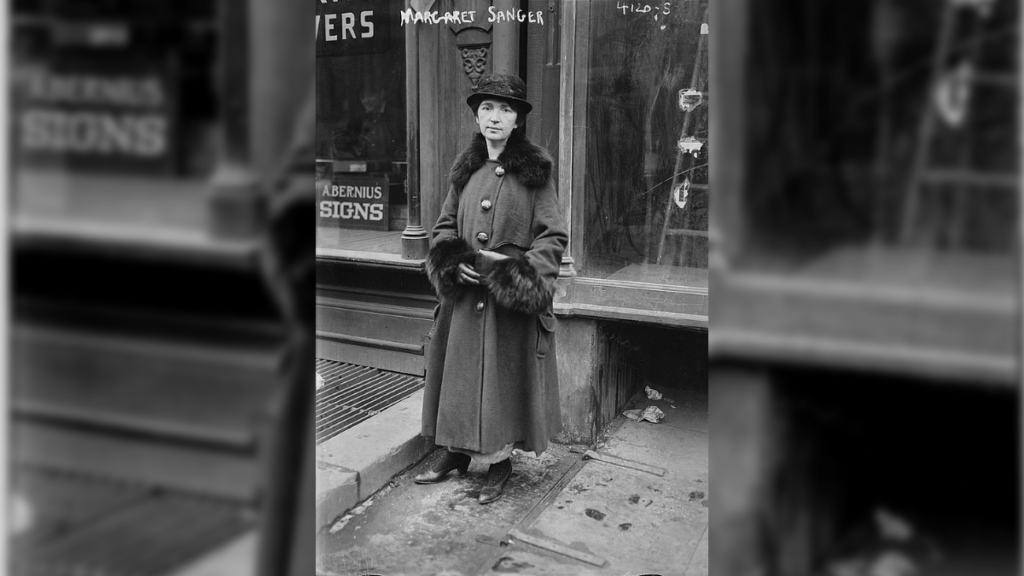Planned Parenthood is finally finding it convenient to distance itself from its founder, Margaret Sanger.
In the New York Times last week, current Planned Parenthood President and CEO Alexis McGill Johnson wrote a piece headlined, “I’m the Head of Planned Parenthood. We’re Done Making Excuses for Our Founder.” McGill Johnson continues, “We have defended Sanger as a protector of bodily autonomy and self-determination, while excusing her association with white supremacist groups and eugenics as an unfortunate ‘product of her time.’” McGill Johnson cites Sanger’s speaking to a women’s auxiliary group of the KKK, her support of the 1927 decision Buck v. Bell (which allowed for forced sterilization), and her unethical experiments on poor women in Puerto Rico as reasons for Planned Parenthood to part ways with Sanger’s legacy. “We don’t know what was in Sanger’s heart, and we don’t need to in order to condemn her harmful choices.”
McGill Johnson then calls for Planned Parenthood to reverse course on its history of “privileging whiteness,” and vows to fight against the “dehumanization” of both Black and Latino victims of police violence, and also of transgender people who cannot access health care. (This last is a notable call-out to Planned Parenthood’s latest cash cow, hormone therapy.)
This is an interesting but likely meaningless piece of virtue-signaling for Planned Parenthood (although McGill Johnson says not, citing her diverse board as evidence). For years, the abortion behemoth has struggled with how to reckon with its founder’s bigoted and eugenicist leanings. Sanger clearly wrote in Woman and the New Race (1920), among many other publications, that she thought birth control would free women from the scourge of “involuntary motherhood.” Once free, women would be free to pursue education, career, a more “enlightened” motherhood, etc. They would produce better children, because they themselves would be healthier and more educated.Sanger writes, “Birth control itself, often denounced as a violation of natural law, is nothing more or less than the facilitation of the process of weeding out the unfit, or preventing the birth of defectives or of those who will become defectives.” She in particularly devalued the poor, the disabled, and the ”feeble-minded,” and argued in her journal, The Birth Control Review, that the fit would never catch up to the “unfit” via a “cradle competition.” This, she says, is why the eugenics movement needed birth control—to reign in the fertility of poor or otherwise unfit women. (Sanger herself actually tried to keep distance from the abortion movement, instead devoting herself to the development and dissemination of birth control.)
But Planned Parenthood doesn’t actually care about the well-being of its patients. In a study by the Guttmacher Institute, the primary reasons given for terminating a pregnancy were that a baby would interfere with a woman’s work, education, or caregiving for others; that the woman could not afford a baby right now (emphasis added); and that she did not want to be a single mother or was having relationship difficulties. Another recent study indicates that the rate of abortion for black women is nearly four times that for white women. Research has demonstrated that abortion is hard on women—post-abortive women experience elevated rates of depression, anxiety, suicidal behavour, and substance abuse, according to a large, international study (whose lead researcher is actually pro-choice). In the face of decades of research demonstrating that abortion is generally not a woman’s first choice, and that it continues to exacerbate racial and economic inequalities, Planned Parenthood continues to promote abortion as the cornerstone of its business model. Former CEO Leana Wen was infamously fired for her desire to reorient around other women’s healthcare services and begin deemphasizing abortion.
Margaret Sanger was in some ways a confusing figure. A close reading of her work seems to indicate genuine care for the poor people she served as a nurse in New York City. On the other hand, she was also undeniably bigoted, worked hard for eugenicist purposes, and ushered in technologies and procedures that have been hugely damaging to poor and minority women. Planned Parenthood may now want to distance itself from its founder, but its own actions tell us that its agenda will always be its own bottom line.
